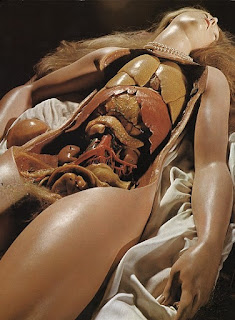Lodewijk Toeput, Pleasure Garden with a Maze, 1579-84
(September 13, 2019 ¬_¬ ) Gah, I can't believe how long it took me to struggle through this book! I chose it initially because of its shortness (184 pages, pages the size of a mini iPad) and thatʼs why I didnʼt just give it up -- I kept thinking SHOORLY I could get through it.
But it was awful reading, both physically -- the type is small and tightly spaced, there is maybe one paragraph indent per page, the pages are dense grey -- and literally -- the prose is dry and academic, and the organization is nothing more than grocery-listing.... and you could tell that space was at a premium by the content as well as by the printing, because Campbell is at pains to fit a lot in. It covers all the gardens in the world, from the beginning of time, in 184 pages! Put together for us by an old-school scholar who merely marshals the facts and dully regurgitates them.
Also, for a book on gardens, which are after all a visual art, there is almost no illustration -- there are a few tiny colour plates tucked in the middle of the book, and a few black-and-white photos throughout the text, but really it is all a bit of an insult to the topic.
I just kept renewing and renewing this library book, putting it aside till the next renewal in favour of more interesting books, knowing that I would never not have access to it. No one else would ever want to borrow it.
But this past spring (2019) I was introduced to a few of the Monty Don garden series on the BBC (
French Gardens,
Italian Gardens,
Around the World in 80 Gardens,
The Secret History of British Gardens,
Big Dreams, Small Spaces, etc.) and was fully blown away by the beauty and interestingness of the topic -- it was like enjoying my old fine arts courses.
So then I came back to the Gordon Campbell book, thinking surely he will at some point mention Monty Don, since Don was so obviously an expert on the history of gardens and on the importance of certain gardens, and all of his books and series predated Campbellʼs book.
But he never mentions him once, nor includes any of his books or films in the reference section. He only comments at one point that the British people are very fond of gardening and armchair gardening to the tune of an important number of GNP pounds per year, alluding to shows like Monty Donʼs (and thereby echoing Monty himself who several times mentions in various series how big an industry gardening is in the U.K. GNP-wise and how beloved).
So I realized what was going on here -- Gordon Campbell saw how scholarly and art-historical the topic could be thanks to Monty Don and his ilk, and decided to stake a claim to it as the bona fide academic (professor at Oxford) and therefore more credible expert. Heʼs “discoveringˮ the topic as far as serious academics are concerned.
Then, he couldnʼt get a lot of money together to support a big book with lots of colour illustration (and maybe, as an academic, would not have wanted to produce anything too showy anyway), so he put out what he could -- a tiny, crammed pocket dictionary of a book.
I say “Yuckˮ to you, sir.
Why do I give it even 2 stars then? Because it's acceptable academics and, though dull, the prose is error-free and understandable. And, obviously, he recognized a good topic.











